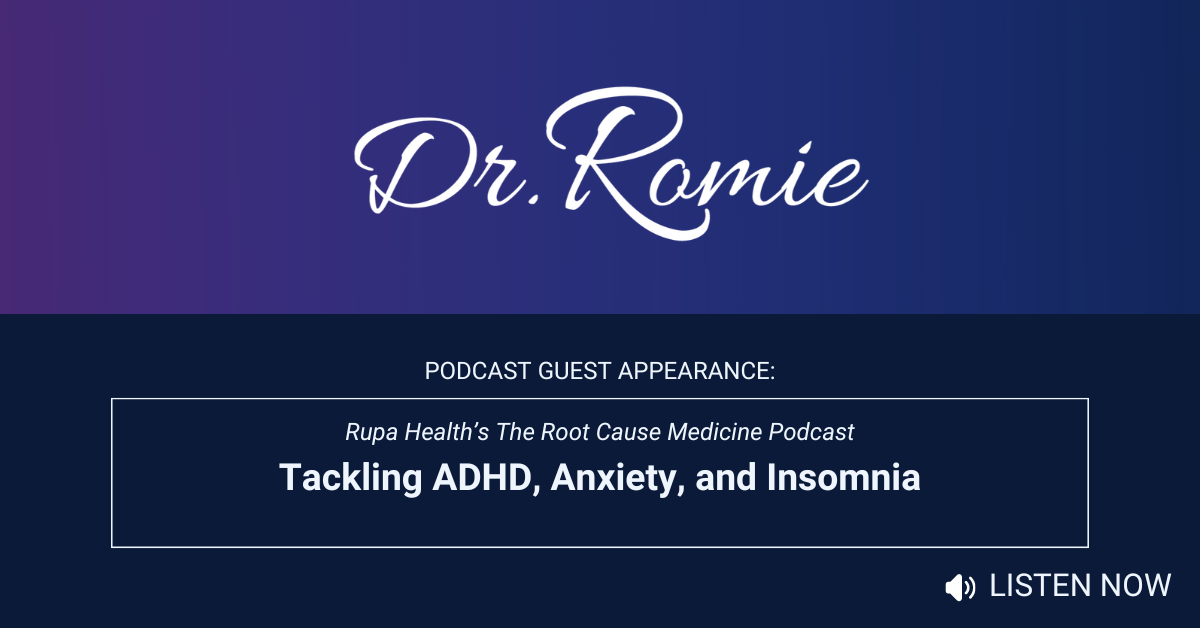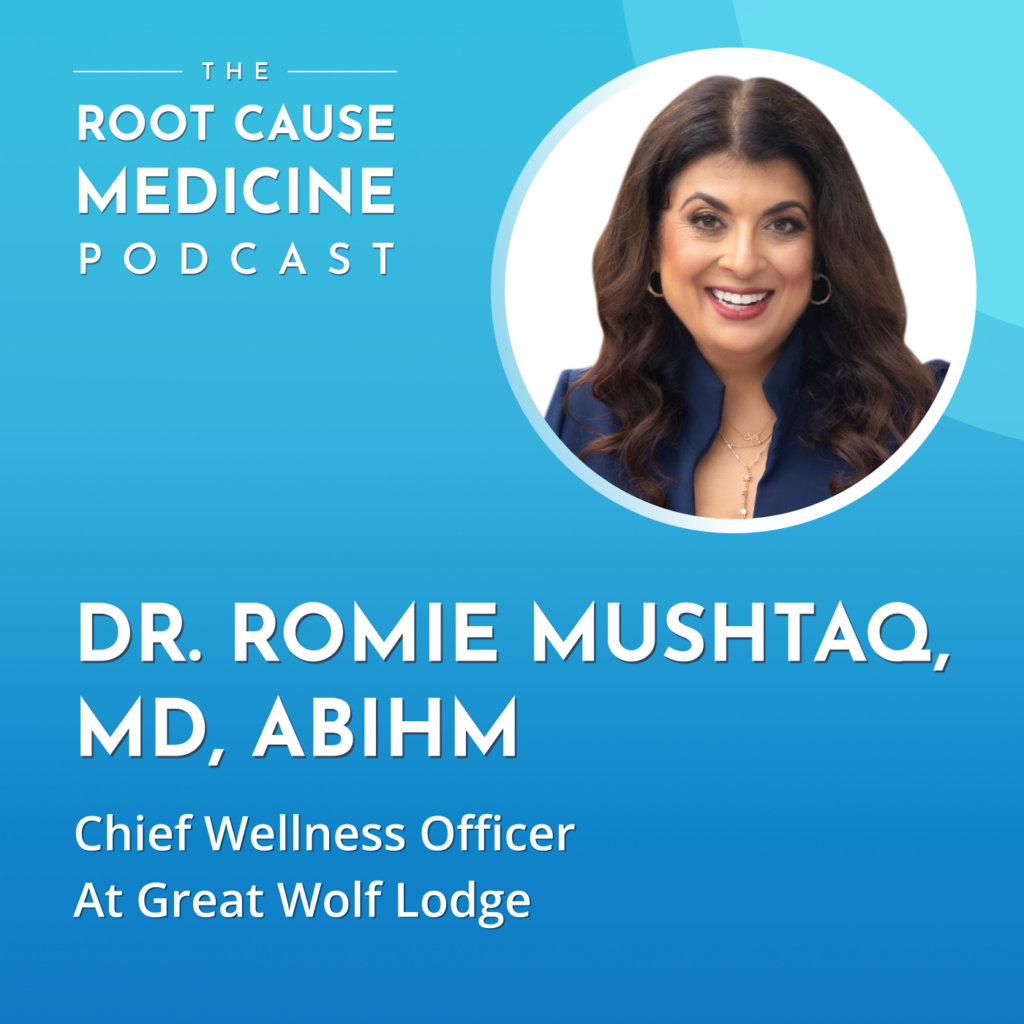In a recent episode of the Root Cause Medicine Podcast, I had the opportunity to discuss a critical and increasingly common issue: the impact of digital devices, chronic stress, and unrecognized health conditions like thyroid disease on adult-onset ADD/ADHD. Hosted by Dr. Kate Kresge, we explored the concept of the “busy brain” and its implications on our daily lives and overall wellness.
🔊 Listen to the full episode here: Apple, Spotify, Podchaser
Key Takeaways from Our Conversation:
- The Reality of Adult Onset ADD/ADHD: It’s a genuine condition exacerbated by our digitally driven lifestyle and unrelenting stress levels. Recognizing this is the first step toward addressing it.
- Beyond Quick Fixes: We emphasized the importance of sustainable lifestyle changes over temporary solutions like fad diets, which often cause more harm than good.
- The Role of Lab Testing: Understanding the underlying causes of conditions like insomnia, anxiety, and lack of focus is crucial. This is where comprehensive lab testing comes into play, offering insights that can lead to life-changing interventions.
- Managing the Stimulant-Sedative Cycle: We delved into practical strategies to move away from reliance on caffeine and sleep aids, highlighting the importance of making choices that promote long-term health and resilience.
During our discussion, I shared insights from over two decades of experience in neurology and integrative medicine, emphasizing the importance of addressing the root causes of the “busy brain.” The episode also sheds light on the eight-week brain shift protocol I’ve developed, which aims to improve sleep, increase energy, and enhance focus—even for those with the busiest of schedules.
🔊 Listen to the full episode here: Apple, Spotify, Podchaser
Discover Directly From the Episode: The Distinct Difference Between Comfort Food and Stress Eating:
One highlight of our conversation was the discussion on the difference between comfort food and stress eating, underscoring the significance of understanding our body’s response to chronic stress and how it influences our dietary choices. This is crucial for anyone looking to break free from unhealthy eating patterns without resorting to restrictive diets that often do more harm than good.
Read exactly what was said:
“Comfort food and stress eating are different. When we are stressed, one of the things we can have in the disruption of the hypothalamic-pituitary-adrenal axis is insulin glucose regulation, and that’s why people see a blood sugar drop and will crave something that is a carbohydrate. Interestingly, many people have mineral, mineralocorticoid, excretion, and excrete salts through the kidney and are now craving salty foods. That’s stress eating where you are eating, and that is now calming down stress. Dr. Romie Mushtaq, MD. Find at 19:35-20:17”
For those intrigued by our discussion and eager to dive deeper into these topics, my book, The Busy Brain Cure, offers a comprehensive exploration of these issues. Published by HarperCollins, it provides actionable, science-backed strategies for those looking to reclaim their mental clarity and well-being.
Purchase The Busy Brain Cure to explore deeper
Resources:
Dr. Romie Mushtaq’s Website
Dr Romie’s Busy Brain Test
Buy Dr. Romie’s Book
Dr. Romie Mushtaq on LinkedIn
Dr. Romie Mushtaq on Facebook
Dr. Romie Mushtaq on Instagram
Dr. Romie Mushtaq on YouTube
Dr. Romie Mushtaq on X
Great Wolf Lodge Website
Rupa Health’s Website
Rupa Health on LinkedIn
Rupa Health on Instagram
Rupa Health on Tik Tok
Rupa Health on YouTube
Dr. Kate Kresge’s Website

